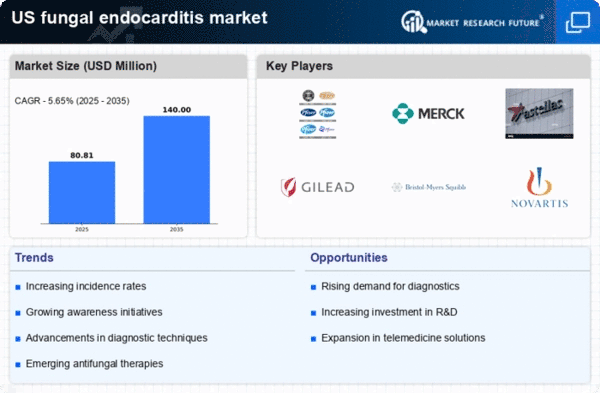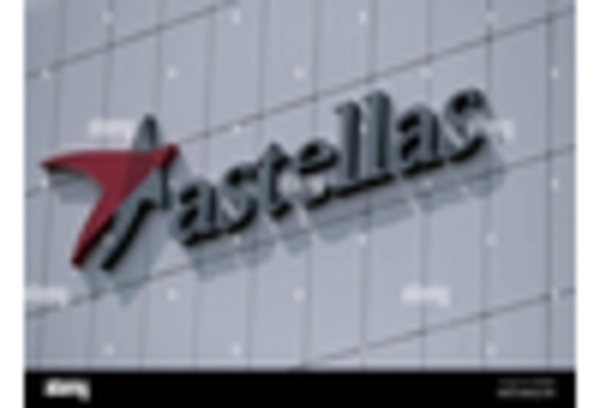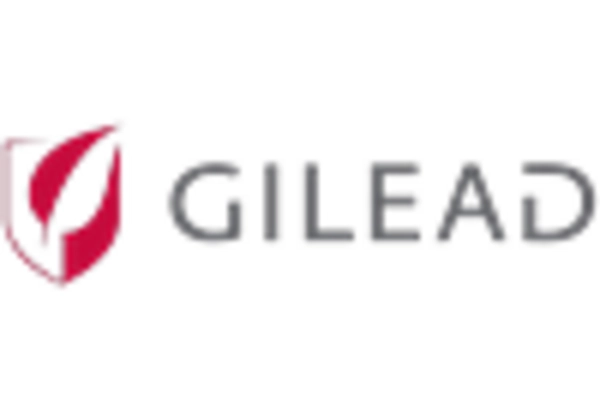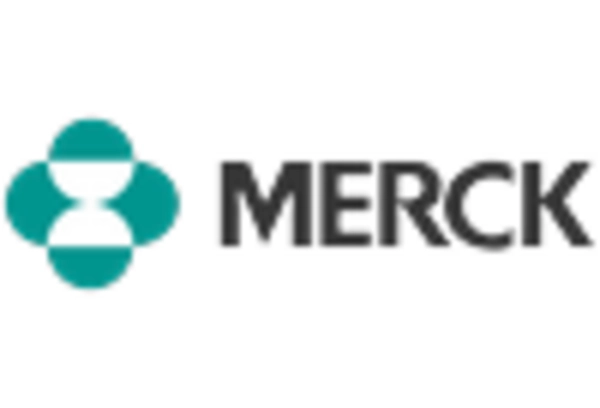Rising Healthcare Expenditure
The upward trend in healthcare expenditure in the US is anticipated to bolster the fungal endocarditis market. Increased funding for healthcare services allows for better diagnostic and treatment options for patients suffering from fungal infections. As hospitals and clinics invest in advanced technologies and therapies, the availability of effective treatments for fungal endocarditis is likely to improve. According to recent data, healthcare spending in the US is expected to grow at an annual rate of 5.4%, reaching nearly $6 trillion by 2027. This financial commitment may enhance the overall landscape of the fungal endocarditis market, facilitating access to necessary medical interventions.
Aging Population and Comorbidities
The aging population in the US is a critical driver for the fungal endocarditis market. Older adults are more susceptible to various health conditions, including fungal infections, due to weakened immune systems and the presence of comorbidities. As the demographic of the US shifts towards an older population, the incidence of fungal endocarditis is likely to increase. This trend necessitates the development of specialized treatment protocols and healthcare services tailored to this demographic. The US Census Bureau projects that by 2030, approximately 20% of the population will be 65 years or older, which could significantly impact the demand for services related to the fungal endocarditis market.
Technological Innovations in Treatment
Technological advancements in the treatment of fungal infections are poised to impact the fungal endocarditis market positively. Innovations such as novel antifungal agents and combination therapies are being developed to combat resistant strains of fungi. These advancements not only improve patient outcomes but also expand the treatment options available to healthcare providers. The introduction of targeted therapies and personalized medicine approaches may further enhance the efficacy of treatments for fungal endocarditis. As the market for antifungal drugs evolves, it is projected to grow significantly, potentially exceeding $20 billion by 2027, thereby influencing the fungal endocarditis market.
Increasing Awareness of Fungal Infections
The growing awareness surrounding fungal infections is likely to drive the fungal endocarditis market. Healthcare professionals and patients are becoming more informed about the risks associated with fungal endocarditis, which may lead to earlier diagnosis and treatment. This heightened awareness is reflected in the increasing number of educational campaigns and resources available to both medical practitioners and the public. As a result, the demand for effective antifungal therapies and diagnostic tools is expected to rise. In the US, the market for antifungal drugs is projected to reach approximately $15 billion by 2026, indicating a robust growth trajectory that could positively influence the fungal endocarditis market.
Emerging Research and Development Initiatives
Emerging research and development initiatives focused on fungal infections are expected to drive growth in the fungal endocarditis market. Increased funding for research projects aimed at understanding fungal pathogens and their interactions with the human body may lead to the discovery of new treatment modalities. Collaborations between academic institutions and pharmaceutical companies are fostering innovation in antifungal therapies. The National Institutes of Health (NIH) has allocated substantial resources towards studying fungal diseases, which may result in breakthroughs that enhance the management of fungal endocarditis. This focus on R&D could potentially reshape the landscape of the fungal endocarditis market in the coming years.
















